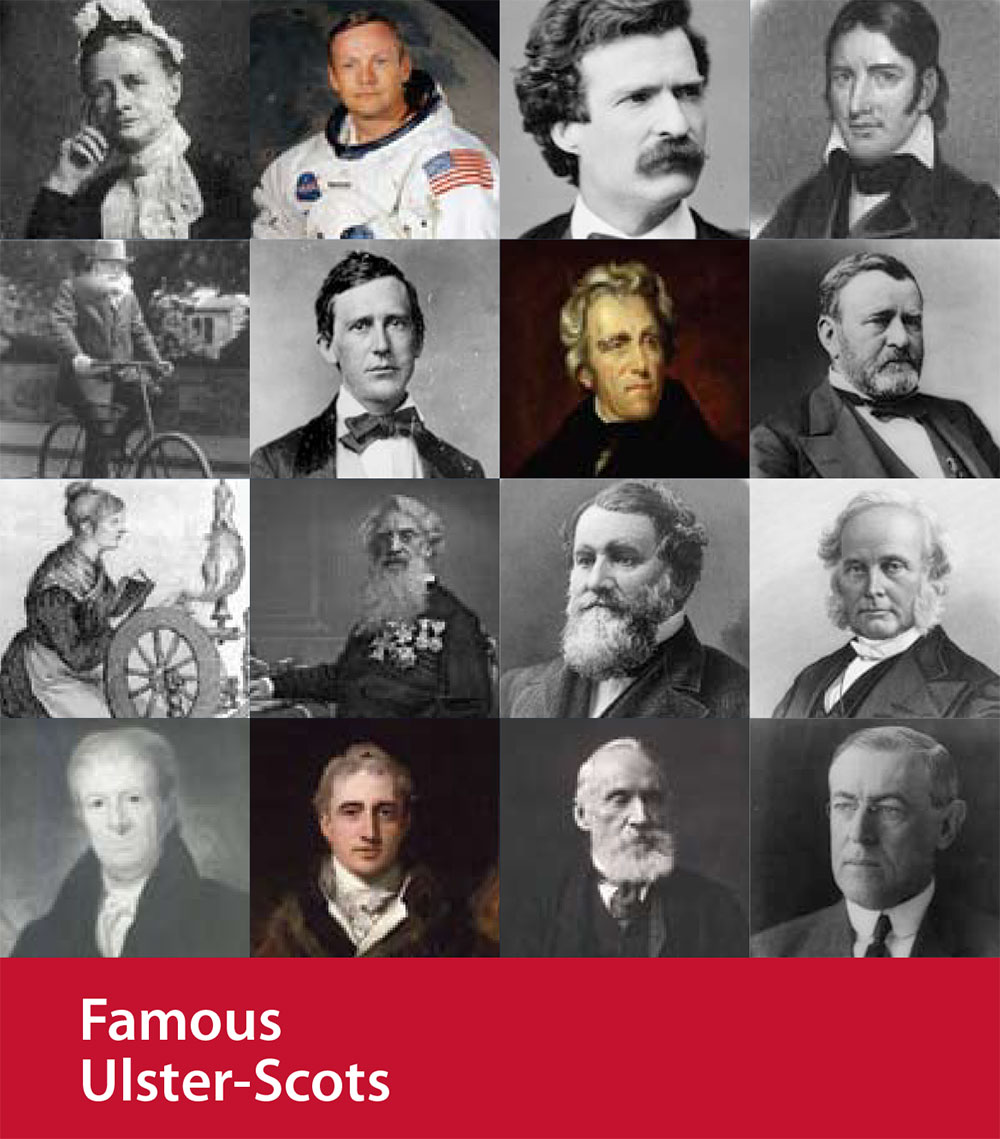Famous Ulster-Scots
Famous Ulster-Scots from the language & literature world:
Cecil Frances Alexander (1818-95)
Although the celebrated hymnwriter and poetess was born in Dublin, Cecil Frances Humphreys spent the greater part of her life in north-west Ulster in the Diocese of Derry and Raphoe. By the 1840s she was already known as a hymn writer and her compositions were appearing in Church of Ireland hymnals. In October 1850 she married William Alexander, an Anglican clergyman, who subsequently became Bishop of Derry (1867) and Archbishop of Armagh (1896). Many of her hymns – including ‘All Things Bright and Beautiful’, ‘There is a Green Hill Far Away’ and ‘Once in Royal David’s City’ – remain popular throughout the world.
Further Reading:
Celine McGlynn & Dr Pauline Holland, Sarah Leech: The Ulster-Scots Poetess of Raphoe, Co. Donegal.
Stephen Collins Foster (1826-64)
Foster was nineteenth-century America’s pre-eminent songwriter. Although many of his songs have Southern themes, Foster never lived there and visited the Deep South only once, on a river-boat trip down the Mississippi to New Orleans in 1852 on his honeymoon. His songs, such as ‘Oh Susanna’, ‘Camptown Races’, ‘Old Folks at Home’ (‘Swanee River’), ‘My Old Kentucky Home’, and, above all, ‘Beautiful Dreamer’ remain immensely popular over 150 years after their composition.‘ The father of American music’ died tragically young and in abject poverty in New York. Foster’s great grandfather sailed to America from Londonderry about 1728.
Further Reading:
Ken Emerson, Doo Dah! Stephen Foster and the Rise of American Popular Culture (1998).
Samuel Langhorne Clemens 'Mark Twain' (1835-1910)
Clemens took ‘Mark Twain’, his pseudonym, from the leadsman’s call on the Mississippi river. The Adventures of Huckleberry Finn (1885), has been hailed the first ‘Great American Novel’, a concept meaning a novel which most perfectly represents the spirit of life in the United States at the time of its writing. He wrote more than 30 books, including The Adventures of Tom Sawyer (1876), and hundreds of short stories and essays. During the last decade of his life he was a vehement critic of US foreign policy. His ancestors emigrated to the United States from Ballyclare, County Antrim.
Further Reading:
R. Kent Rasmussen, Critical Companion to Mark Twain: A Literary Reference to His Life and Work., (2007).
Sarah Leech (1809-c.1830)
The daughter of a linen weaver, Sarah was born near Raphoe, County Donegal, and is one of the few published women writers in the Ulster-Scots tradition of that era. Beyond the biographical account contained in her only published collection, Poems on Various Subjects (1828), very little more is known about her. Her staunch unionism and Protestantism are evidenced by poems such as ‘The Brunswick Clubs’ and ‘Progress of the Reformation’. ‘On the Killing of a Mouse in Harvest’ compares very favourably with Burns’ ‘To a Mouse’. Sarah’s ‘weaver poetry’ is genuinely impressive and unfortunately undervalued.
Further Reading:
Celine McGlynn & Dr Pauline Holland, Sarah Leech: The Ulster-Scots Poetess of Raphoe, Co. Donegal.
Wesley Greenhill Lyttle (1844-96)
Wesley Greenhill Lyttle was born in Newtownards, County Down. The editor of the North Down and Bangor Gazette, he was the author of a great many poems and sketches in Ulster Scots. His humorous monologues, recited in the speech of an Ards farmer, were reproduced in his newspaper and subsequently published as Robin’s Readings. 'Betsy Gray' (in which Lyttle preserved a great deal of oral tradition relating to the 1798 rebellion in County Down) too originally appeared in serial form in his newspaper. He also wrote 'Sons of the Sod' and 'Daft Eddie' and 'the Smugglers of Strangford Lough'.
Further Reading:
Rolf Loeber & Magda Loeber, A Guide to Irish Fiction 1650-1900 (Dublin, 2006).
Archibald McIlroy (1859-1915)
Archibald McIlroy, the foremost local exponent of the Kailyard school of writing, was born in Ballyclare, County Antrim, in 1859. He worked for the Ulster Bank but left to become an insurance agent. He travelled extensively for the sake of his health, visiting the Holy Land, Greece, Italy and Egypt. For the last three years of his life he lived in Canada. McIlroy died as a result of the sinking of the RMS Lusitania by a German submarine. His most famous novel was When Lint was in the Bell (1897), a light-hearted, lightly fictionalized account of life in nineteenth-century Ballyclare.
Further Reading:
Rolf Loeber & Magda Loeber, A Guide to Irish Fiction 1650-1900 (Dublin, 2006).

